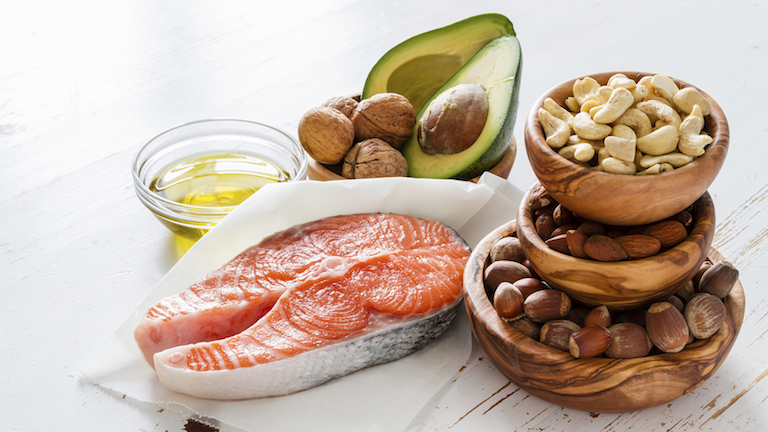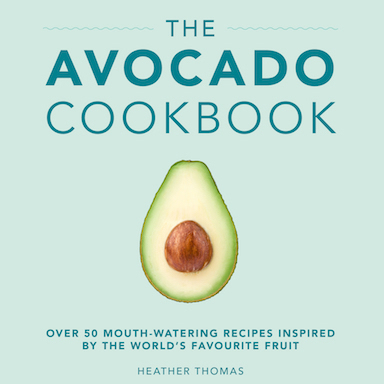Eating a diet that includes healthy fats can increase your chances of living for longer, new research has found. Here are the stars of the healthy fat show and what to do with them
If you have fat-phobia, it’s time to get over it. A 30-year long study shows why we should be replacing our unhealthy saturated and trans fats for polyunsaturated and monounsaturated healthy fats.
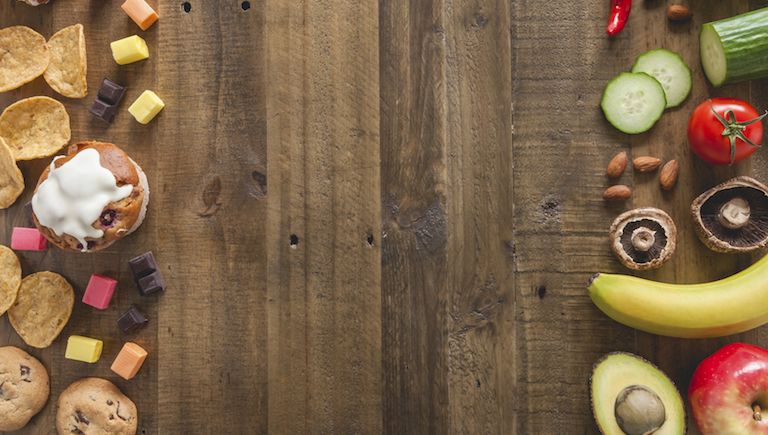
People who frequently consume servings of unsaturated fat (healthy fats) – that are predominantly found in fish and vegetable oils – have a much lower risk of mortality than those who regularly eat saturated foods (unhealthy fats), according to a study carried out on 120,000 people by Harvard University.
Dong Wang, one of the leading authors and a researcher in the Department of Nutrition at Harvard said,
‘Our study found that higher intake of saturated fat (found in foods like butter, lard, and red meat) and especially trans fat (predominantly from partially hydrogenated vegetable oil), was associated with greater risk of mortality when compared with the same number of calories from carbohydrate.
‘When compared with carbohydrates, every 5 per cent increase of total calories from saturated fat was associated with an 8 per cent higher risk of overall mortality’.
When compared with carbohydrates, every 5% increase of total calories from saturated fat was associated with an 8% higher risk of overall mortality
In addition, Wang alternatively explains that the study found that a high intake of unsaturated fats, including both polyunsaturated fats and monounsaturated fats from primarily plant-based foods, was associated with a lower overall mortality.
Polyunsaturated fats was especially associated with a lower risk of premature death as it includes both omega 6 fatty acids – found in most plant oils, nuts, and seeds- and omega 3 fatty acids – found in high concentrations in walnuts, flax seeds, soybean oil, and fish, while trans fats had the most significant negative effect on health.
With this knowledge, experts are now encouraging unsaturated, healthy fats to be introduced in to the national dietary guidelines with it’s importance being argued as similar to protein, vegetables and wholegrain.
Nita Forouhi, of the Medical Research Council’s epidemiology unit at the University of Cambridge, told the Times,
‘This large study provides robust evidence for the health benefits of swapping saturated fat with polyunsaturated fat.’
It’s true – in fact the evidence even supports the traditional Mediterranean diet which boasts a low-fat, high carbohydrate approach as it is rich in fish, vegetables, nuts and olive oil.
So, to make things easier, as you’re probably completely oversaturated with all those saturation facts, we’ve put together some examples of healthy fats that you can indulge in without feeling an ounce of guilt.
MORE: New fasting diet based on what long-living Greek monks eat
MORE: 10 healthy fats that could help you LOSE weight
-
Extra virgin olive oil
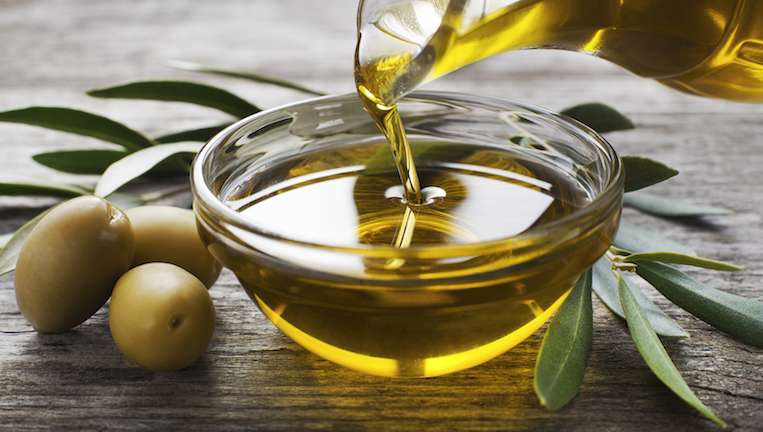
It’s time to say goodbye to the butter. Extra virgin olive oil is the queen of healthy fats and an essential component of the Mediterranean diet. Shown to have numerous healthy benefits, olive oil is definitely something you should try adding in to your diet.
Extra virgin olive oil contains Vitamins E and K and is packed with powerful antioxidants that can fight inflammation. It has also been shown to lower blood pressure, improve cholesterol and reduce the risk of heart disease.
You can swap your butter for olive oil and use it for frying, use it as a dip for breads, or if you’re feeling adventurous, you can even use it in your dessert – take a look at this olive oil ice cream recipe for ideas.
2. Raw nuts
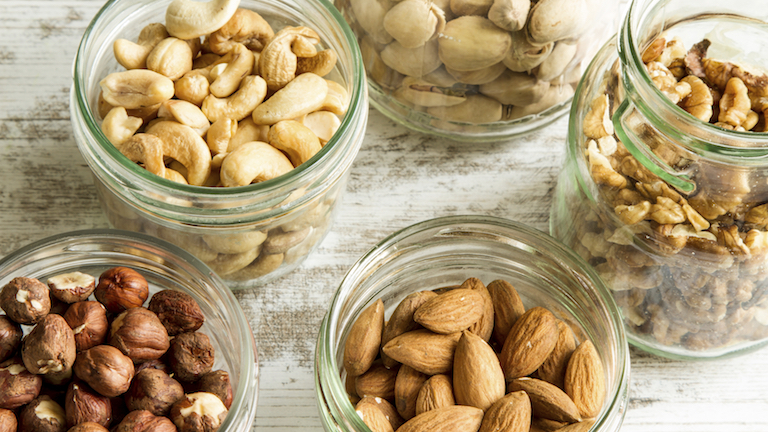
Almonds, walnuts, macadamia nuts, you name it – nuts are high in healthy fats and fibre and are a great plant-based source of protein. They’re also high in Vitamin E and magnesium – a mineral that most people don’t get enough of.
It’s also suggested that nuts can lower the risk of various diseases such as obesity, heart disease and type 2 diabetes.
If you want to mix things up, try making a nut butter or spread – this almond butter recipe is a great example and is also perfect for vegans.
3. Avocados
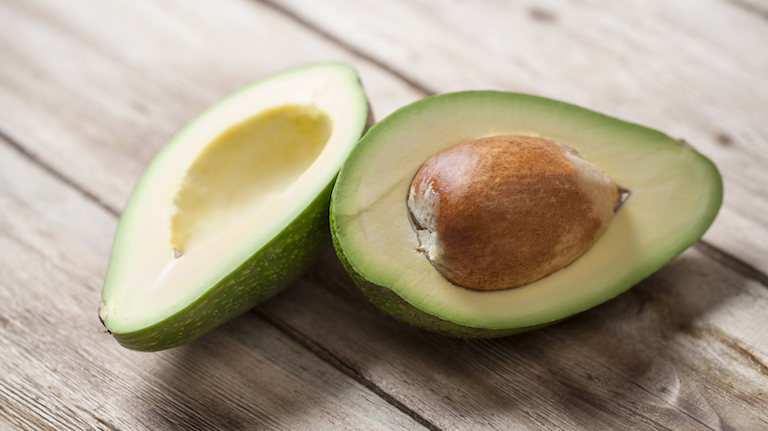
As if avocado’s couldn’t get any better, they are also classed as a healthy fat. Unlike many other fruits, avocados are packed with healthy fats rather than carbs.
‘Avocados are among the most nutritious foods you can eat,’ says Heather Thomas in her new book, The Avocado Cookbook.
‘Not only are they rich in protein and fibre but they are also a good source of potassium, magnesium, iron, zinc, folic acid and vitamins A, B3, B5, B6, B12, C, E and K.
‘Because they are relatively high in fat, many weight-conscious people avoid them, but in fact they contain healthy polyunsaturated and monounsaturated vegetable fat.’
The main fatty acid found in avocados is a monounsaturated fat called oleic acid, which is also the predominant fatty acid found in olive oil.
They are particularly good for healthy skin, digestion and preventing anaemia.
‘Indeed, some studies have shown that eating avocados regularly may help to lower harmful cholesterol levels and reduce the risk of developing heart disease,’ said Thomas.
You can eat avocado raw or the oil can be extracted from the fruit and used for cooking or salad dressings.
Add avocado in to your diet with this creamy strawberry and avocado smoothie extracted from The Avocado Cookbook by Heather Taylor (Ebury Press, £9.99) – it can be eaten as breakfast, lunch, dessert or even as a snack.
You will need:
1/2 a ripe avocado
100g/4oz (1/2 cup) of strawberries, hulled
150ml/1/4 pint (generous 1/2 cup) of milk, plus extra
(optional) 5 tbsp 0% fat Greek yoghurt
Drizzle of honey
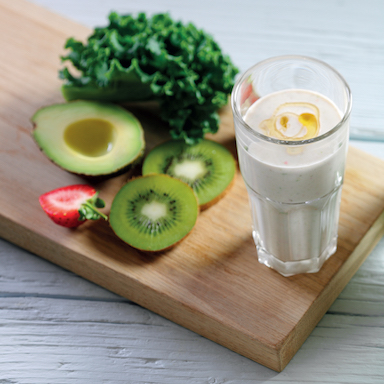
Photography: Joff Lee
Serves: 1
Prep: 5 minutes
- Cut the avocado in half, remove the stone (pit) and peel. Put the flesh in a blender with all the other ingredients and blitz until smooth. If it’s too thick for your liking, add a little more milk to get the desired consistency.
4. Chia Seeds
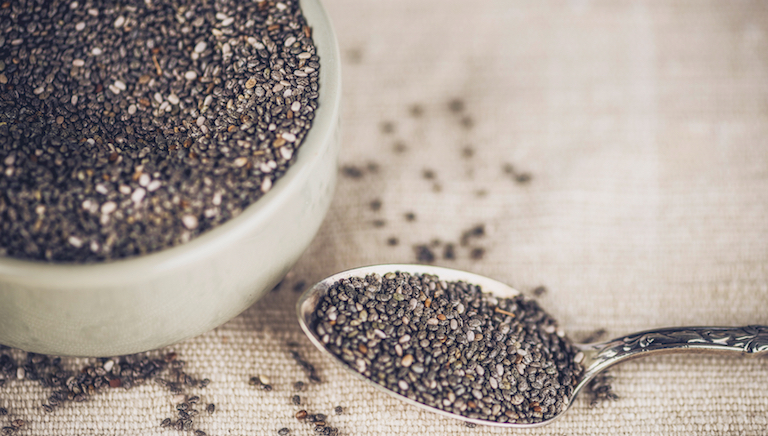
Chia seeds are generally not perceived as a ‘fatty’ food but an ounce of chia seeds actually contains 9 grams of fat.
But that’s nothing to worry about as almost all the carbs in chia seeds are fibre, meaning the majority of calories in them actually comes from fat, making them a fantastic high-fat plant food that is packed with nutrition, minerals and protein. In fact, most of the fats in chia seeds are heart-healthy and full of an omega 3 fatty acid called ALA.
Health benefits include, lowering blood pressure and anti-inflammatory effects.
Our editor, Anna, absolutely loves chia seeds and often indulges in a yummy chia seed pudding in the office – here’s a recipe for chia seed puddings, so you can give it a go for yourself.
5. Rapeseed oil
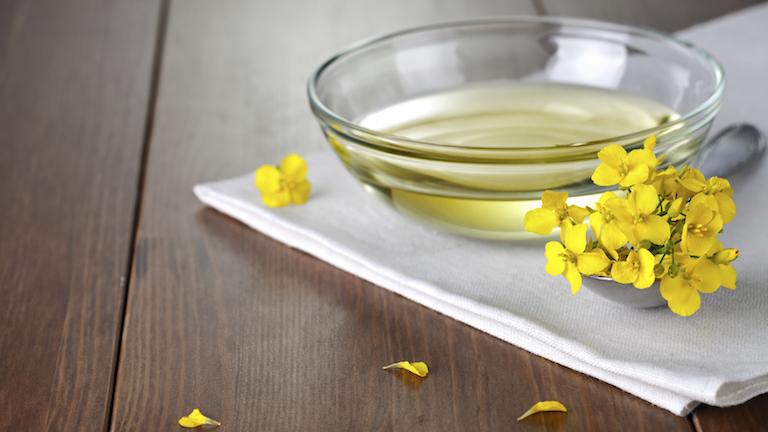
Rapeseed oil contains half as much of the fats found in olive oil, meaning it’s high in polyunsaturated and monounsaturated fats and has a healthy blend of omega 3, 6 and 9.
It’s mainly a health benefit for the heart and can help you maintain healthy cholesterol levels and lower your risk of heart disease.
Not only that, but rapeseed oil also has a ‘high smoke point’ so when used at high temperatures it still maintains its natural benefits.
Rapeseed oil can be used to replace bad fats like butter and cheese and also as a dipping oil. If you’re feeling more adventurous and want to get the most out of rapeseed, try this wild nettle and rapeseed oil soup.
6. Dark chocolate
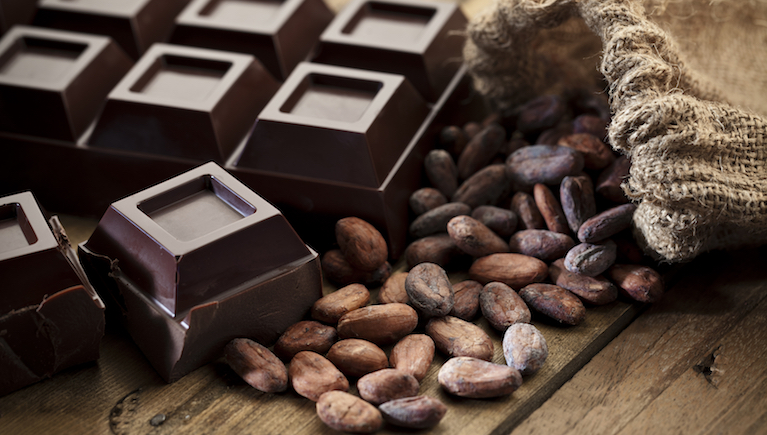
Chocolate? Healthy? Who would of thought it. As long as it’s eaten in moderation, chocolate can actually be beneficial.
Dark chocolate is 11% fibre and contains iron, magnesium, copper and manganese. It is also packed with tonnes of antioxidants – more than blueberries to be exact.
Some of the antioxidants in dark chocolate can lower blood pressure and protect you from harmful cholesterol.
Studies also show that people who eat dark chocolate five or more times a week are less than half as likely to suffer from heart disease, compared to people who don’t eat dark chocolate.
There are also some studies showing that dark chocolate can improve brain function, and protect your skin from damage when exposed to the sun.
So, the good news is we don’t have to scrap chocolate from our diets, just make sure to choose quality dark chocolate, with at least 70% cocoa.
Here we have a delicious dark chocolate coconut oil fudge recipe, courtesy of food blogger ‘backtoherroots’ – it’s gluten-free, vegan friendly and packed with healthy fats.
7. Fatty fish – salmon, herring and mackerel
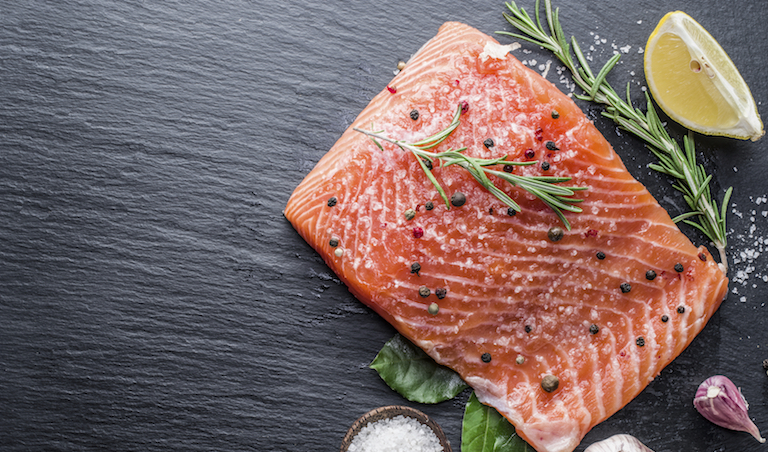
Salmon, mackerel and herring – these types of fish are loaded with heart-healthy omega-3 fatty acids, high quality proteins and important nutrients.
Studies show that people who eat fish tend to be much healthier, with a lower risk of heart disease, depression, dementia and other common diseases.
This grilled mackerel with soy, lime and ginger is a great example of how you can add healthy fatty fish in to your diet.
If fish isn’t really your thing, then try taking a fish oil supplement instead. Cod fish liver oil contains all of the omega-3’s you need as well as vitamin D.
8. Flaxseed
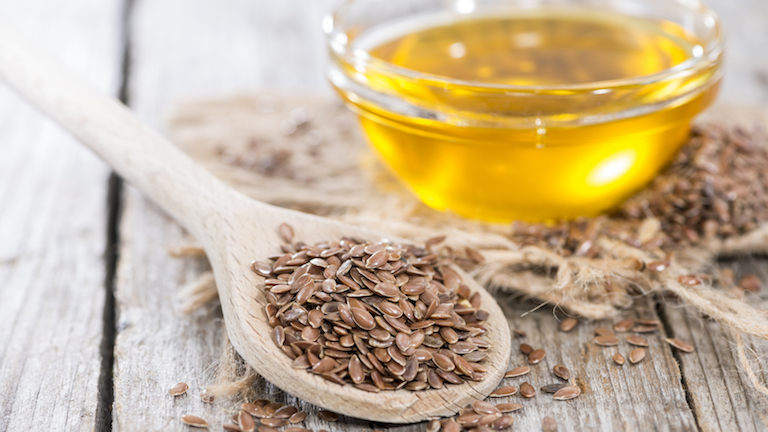
One cup of ground flaxseed contains a huge 48 grams of fat, but it’s all of the healthy, unsaturated kind and you actually only need one to two tablespoons to reap the benefits.
Flaxseed is a great source of omega 3 fatty acids, which helps to reduce inflammation and benefits heart and brain health. It’s also suggested that flaxseed can help to prevent some types of cancer as it contains plant nutrients that have estrogen and antioxidant properties.
And finally, flaxseed contains plenty of fibre, meaning it helps you to feel fuller for longer so you end up eating less.
Try mixing a tablespoon into your morning porridge, add it to your yoghurts or include it in your baking – here you can bake ‘salt and pepper flax crackers‘ – a simple gluten-free, grain-free cracker you can serve with your favourite dip.
9. Soybean oil
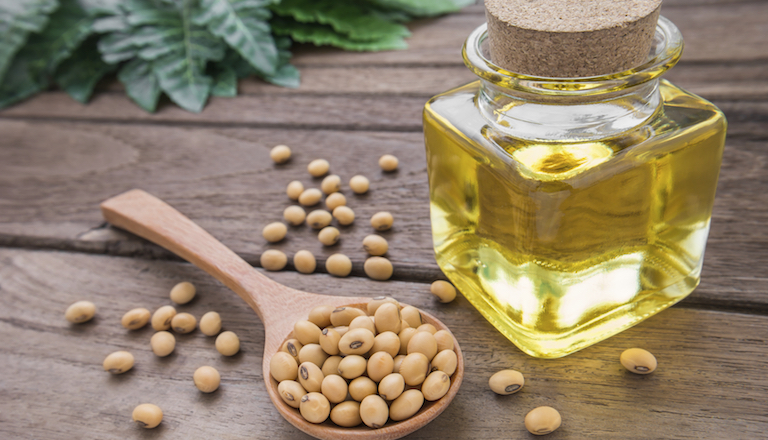
Soybean oil is is known for it’s neutral flavour and well-balanced fatty acids, which make it a great ingredient for a variety of applications, from baked goods to salad dressings.
High in both poly and monounsaturated fats, it is one of the the few non-fish oils that supplies a great source of omega 3.
It also offers plenty of vitamin E as well, preventing cell damage that could lead to diseases such as cancer and heart disease.
Overall, soybean oil can positively impact cardiovascular health, blood pressure, heart disease and cholesterol levels.
Soybean oil can be wonderful when used as a salad dressing or dipping oil so here are some tasty infused soybean oils that you can serve with bread or drizzled over pasta or salad.
Buy Heather Thomas, ‘The Avocado Cookbook‘, Ebury Press, £9.99
MORE: SUMMER SPECIAL – 10 best fake tans for summer 2016
MORE: SUMMER SPECIAL – 10 best sunscreens for under make-up, during exercise and on a budget
MORE: SUMMER SPECIAL – 30 day bikini body challenge
Like this article? Sign up to our newsletter to get more articles like this delivered straight to your inbox.



